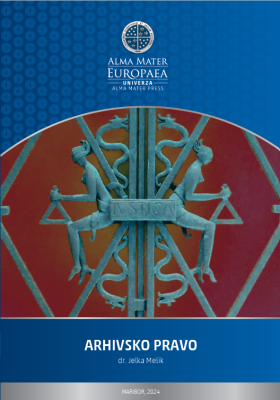Archives Law
Synopsis
The publication's main purpose is to alert archival students and the general public to the importance of documentary and archival material, point out the key legal provisions of basic archival legislation, and encourage its addition and upgrading.
Effective archival legislation is the greatest guarantor for the preservation of archival material, which we need in the judiciary as evidence, in administration as an overview of activities, in the life of a citizen to protect rights, in health care to look into the course of illness and treatment, in historiography for research into the past, and more could be listed. We need archival material to survive every one of us. Legal and archival science must join hands and create good and effective legislation that will contain precise provisions on the essential tasks of those responsible for activity in the archival field.
There is no book entitled Archives Law in our country. However, some monographs present archival science, dealing with records, or current archival legislation and by-laws in the field of archival activity. These monographs were published more than ten years ago and need to be supplemented in accordance with new social conditions and the new way of dealing with records, which is the result of new technologies.
In Slovenia, the prevailing opinion is that records that have permanent value primarily serve the needs of researchers of the past and the creation or preservation of collective memory. But the truth is far from that. Without awareness of the importance of archival material for protecting human rights, democracy, and the rule of law, these values cannot be established.
The importance of the publication is to alert the legal and other public to the extent of archival material, which also transcends national and national borders. Slovenia is an excellent example of a country that, based on archival material, remedied many past injustices. Slovenia is also an example of a misunderstanding of the importance of archival material. Apart from a few decisions of the Constitutional Court, which testified to this on December 17, 2020, this was also confirmed by the judgment of the Court of Justice of the EU (in case C-316/19). The Court of Justice of the EU fully accepted the European Commission's lawsuit against Slovenia, which violated the principle of the inviolability of the archives of the European Union by unilaterally confiscating documents that were part of the ECB's archives. The Commission v. Slovenia is a precedent, an example for other EU members.
Last but not least, the publication draws attention to the fact that the Alma Mater Europaea University is an institution that trains candidates not only for work in public archives but also for work with the creators of archival material, thus ensuring the preservation of the memory and evidence of the Slovenian state and society.
Finally, the publication is also important as a call for harmonizing the archival law of the European Union members, which, despite great plans, completely died out in the early 1990s.
Downloads


